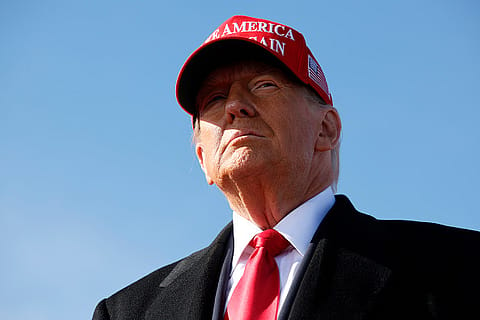Trump 2.0: What it means for India, Asia, other emerging markets
As Trump outlines expansive trade and economic policies, should India and other EMs brace for shifts in trade, investment policies and geopolitical alliances? Here’s what experts say

Former U.S. president Donald J. Trump, 78, has secured an astounding victory over Democratic Party candidate Kamala Harris in the U.S. Elections 2024 as key swing states including Pennsylvania, Georgia and North Carolina voted in his favour. Charting a comeback four years after he lost to Joe Biden, Trump secured victory over 270 Electoral College votes, which is the minimum criterion to win the U.S. presidency.
In one of the greatest political comebacks in American history, Republicans led by Trump have also secured control over the Senate. With this, Trump has improved on his 2020 performance across both red and blue states.
In his speech amid the election results, Trump described the 2024 elections as the "greatest political movement of all time". "We are going to help our country heal, fix our borders, we made history for a reason tonight. We have achieved the most incredible political win. I want to thank the American people. I will fight for you and your family with every breath in my body."
India is one of the biggest allies and trading partners of the U.S. Policies envisioned by Trump could play a huge role in reshaping the relationship between the two countries. What it means for India, Asia and other emerging markets, let's have a look.
1) Trump's expansionary policies:
Trump’s proposed policies of lower corporate taxes, higher tariffs on China or the rest of the world and incentives for local manufacturing are expansionary in nature and could lead to higher interest rates, a stronger U.S. dollar and a slowdown in global growth. He has indicated his preferences for (1) lowering tax rates for corporates (especially those manufacturing in the US); (2) 60% or higher tariffs on imports from China and 10-20% on the rest of the world; (3) mass deportation of illegal immigrants, which could impact labour supply; (4) cut aid to Ukraine, curb participation in NATO, while continuing to support Israel and the protection of Taiwan; and (5) increased influence over the Fed. "We believe his policies could lead to higher interest rates, a strong U.S. dollar and a slowdown in global growth," writes analysts at JM Financial.
2) Trade with India and other EMs:
Recommended Stories
Under Trump, the impact is expected to be particularly “negative” for Asian emerging markets, especially Taiwan, Thailand and especially China. "Malaysia and India would also face adverse effects, albeit to a lesser degree," writes economists at Paris-based Amundi Investment Institute, adding Mexico and Hungary could emerge as relative winners. Mexico, in particular, is expected to take advantage of supply-chain shifts from China towards North America.
3) Nomura sees Trump win beneficial for India:
A win for Trump means an advantage for India, says market research firm Nomura. A possible friction in bilateral trade due to Trump’s policies could be outweighed by supply chain benefits and India will be a relative beneficiary due to its domestic demand-driven growth model and benefits from lower commodity prices, supply chain shifts and foreign policy, the latest Anchor Report of Nomura says.
Nomura analysts point out that the deep economic and strategic interests shared by India and the U.S. are unlikely to be compromised. They also note that the U.S. sees India as a strategic counterweight to China on foreign policy. Notably, the U.S. accounts for about 18% of India’s merchandise exports. India is also one of the world’s top services exporters, particularly of IT and professional services and the U.S. is an important customer of India’s services sector.
(INR CR)
4) Policy continuity with the U.S., say CEA:
India chief economic advisor (CEA) V. Anantha Nageswaran today said India and the U.S. will see a "policy continuity" under the new president. "We will deal with whoever America chooses to elect as president," he told global news agency Reuters in Singapore. The comments came following Trump's recent remarks where he termed India a "very big abuser" of trade norms.
5) Asia to be more under pressure:
Econmists at Paris-based Amundi Investment Institute say geopolitical reordering will shape market opportunities, particularly for emerging markets in the context of supply-chain relocations driven by tariffs and the competition for technological supremacy. "Asia may be more under pressure in a Trump administration, but China may also consider the US elections outcome in assessing its stimulus. Other EM may benefit from relocation, such as Mexico."